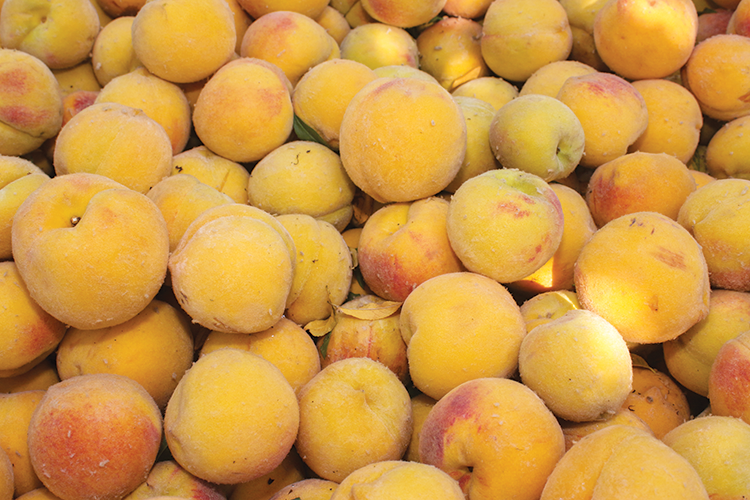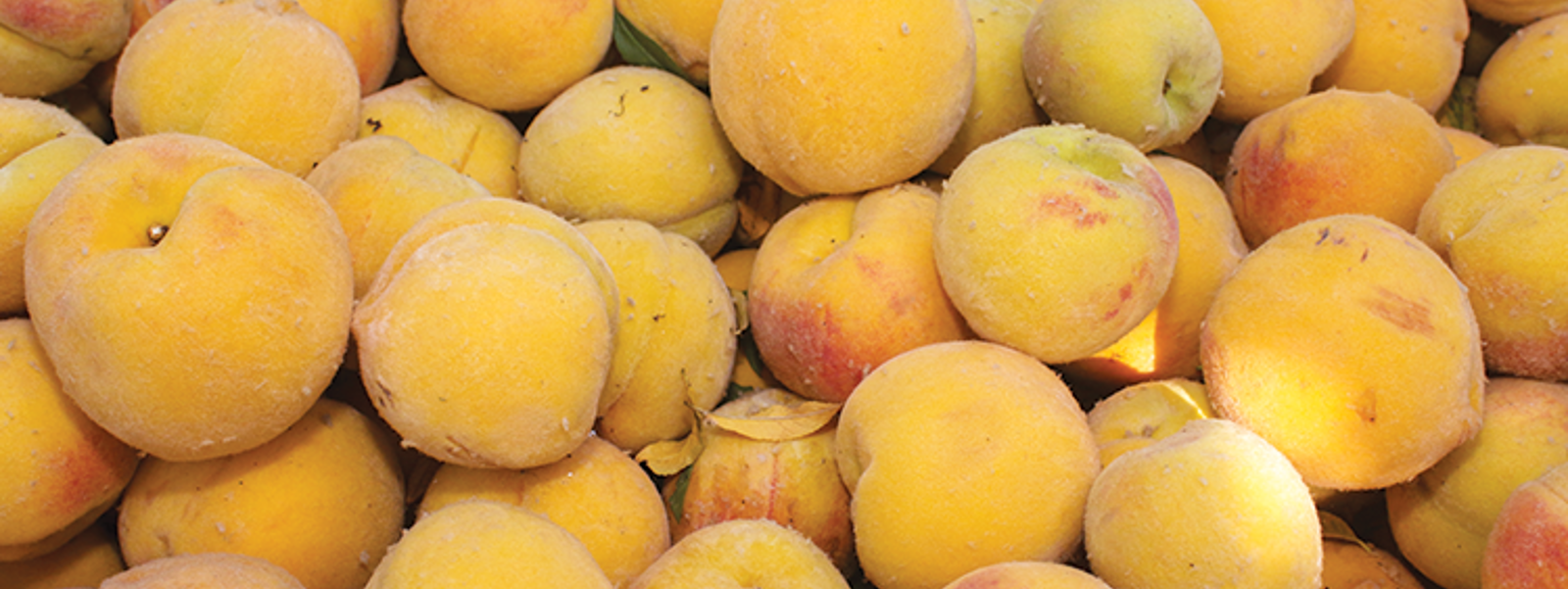Customer demand for cling peaches exceeds production


By Christine Souza
California cling-peach sector leaders report that times are good for processed fruit. But taking a lesson from past years of crop oversupply and low prices, they caution growers to secure a contract before planting more acres.
“Our industry is in the best overall position that it has been in for many years,” Rich Hudgins, president and CEO of the California Canning Peach Association, told growers who gathered for the organization’s 101st annual meeting in Sacramento on Jan. 24.
“With customer demands currently exceeding our 2022 production, our canners are making a reasonable profit in the marketplace, while peach growers received a fair price for 2022 crop,” Hudgins said.
A key challenge is to avoid the overplanting and over-contracting mistakes that occurred in 2016 and 2017, which resulted in several years of oversupply, he said.
Sutter County farmer Ranjit Davit, who was re-elected as California Canning Peach Association board chairman, said a goal of the cling peach sector is to remain in a balance.
“In the coffee shops, you hear growers say they are pulling walnut orchards, and ‘let’s plant peaches,’ and you hear pear growers say they want to be peach farmers,” Davit said, recalling that farmers and processors have watched the sector consolidate acres and number of processors. “As we move forward to accommodate our processors’ efforts to increase supply to keep up on current market demand by contracting for new plantings, we must be sure as growers and processors that we don’t oversupply our marketing position.”
California cling peach growers produced 204,440 tons of peaches for canned and frozen fruit markets in 2022, down 9% from 2021. The contract price to growers from processors, including Pacific Coast Producers and Del Monte, was $603 per ton, up from $518 per ton in 2021, according to the association.
Considering impacts from spring frosts and hailstorms, the association said it reached out to processors to change terms of sale to meet 2022-23 market demand. There were 13,700 bearing acres in 2022.
Matt Strong, president and CEO of Pacific Coast Producers, said during his keynote address that there is an undersupply of cling peaches due to a shortage of bearing acres and low yields due to weather challenges.
Strong said PCP, the world’s largest fruit canner, has contracted new plantings in 2023. He anticipates having 130,000 tons of cling peaches this year. Any gap in supply would be filled with exports, primarily from China and Greece. “Going forward, we (at PCP) are targeting a total production of about 140,000 tons. We are not signing up any new acres,” Strong said.
Estimated statewide crop size for cling peaches this year is 206,000 tons for a three-year average yield and 223,600 tons for a 10-year average yield, according to the association.
Strong said he is optimistic about the future of the canned peach industry.
“COVID provided a nice recovery for our retail markets and current economic conditions will provide tailwinds in the near future,” he said. “Additionally, we must work hard every day to bring consumers into the canned food aisle so they can experience the flavor, nutrition and value of our products.”
A potential positive for cling peaches is the “Buy American” legislation enacted in California last year, which requires California schools to purchase domestic food products unless the price for the foreign sourced product is more than 25% less than domestic product pricing or if the item was not produced in sufficient quantity domestically. The law takes effect Jan. 1, 2024.
“There are many reasons to be optimistic about the coming year,” Hudgins said. “Our state has some of the most fertile soil in the country and it now appears that our water situation has improved compared to last year.”
He said potential wildcards are weather, labor availability and impact of imports on the domestic market.
(Christine Souza is an assistant editor of Ag Alert. She may be contacted at csouza@cfbf.com.)




